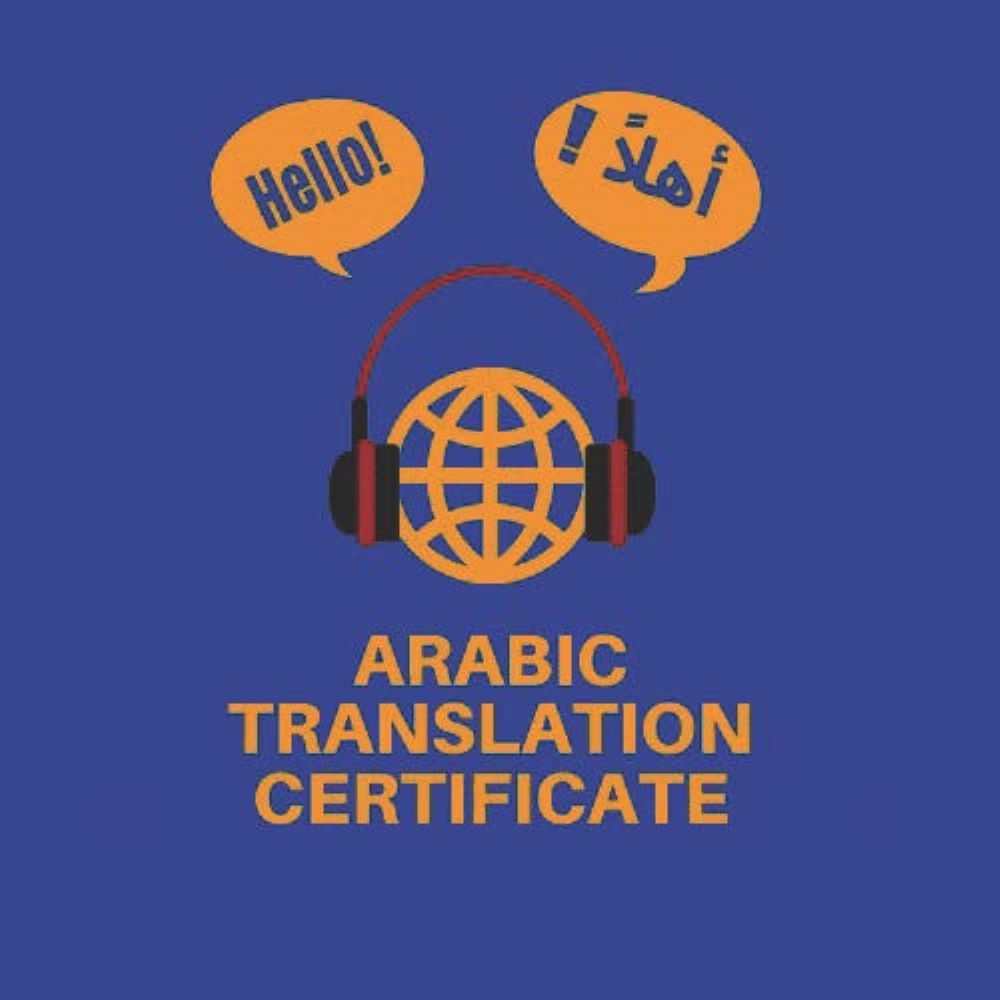Arabic Translation Certificate

Arabic is one of the six official languages designated by the United Nations. The United States government acknowledges the importance of studying Arabic and has expressed such acknowledgement by adding Arabic to its Critical Languages program. The Arabic Translation Certificate would enable non-native speakers, heritage learners, and native speakers not only to improve their command of Arabic language, but also to achieve a professional level of using both dialect and standard Arabic in translation.
Students can combine their majors with a translation certificate in fields such as healthcare and medicine, engineering, science, business, media, political science, social sciences, and humanities. A professional in any of those fields may have a better hiring opportunity if they also prove they can serve their employers as translators as well.
Given the demographics of the Detroit Metro-Area, with the highest concentration of Arabic and Arab-American communities, interest in a translation certificate from among U-M students and the Detroit and Dearborn communities is growing. This is already evident in the use of Arabic in government documents, as basic as driver’s exams. Learners who obtain the Arabic Translation Certificate have a good chance of working at government agencies, such as the state department, in addition to the Arab American National Museum, local schools, banks and private businesses, translation offices, legal and immigration services, health care, tourism, to name a few of local opportunities, not to mention international possibilities as well. As a leading Michigan institution located at the heart of an Arab-American hub, the University of Michigan-Dearborn is set to pioneer translation certification.
In order to serve students and the community better, the Arabic Translation Certificate offers a certificate for undergraduate degree-seeking students, non-degree students and post-degree students. The post-degree certificate component addresses the needs of college graduates, native speakers of Arabic, and community members seeking a post-degree professional certificate.
Information about the Certificate
Students learn the skills necessary for the three main areas of translation:
- Written Translation: such as translating documents, reports, articles, books, and letters.
- Simultaneous Interpreting: such as interpreting medical and legal interviews as well as conferences and meetings.
- Subtitling: such as translating electronically for films, documentaries, news, song, and other audio-visual material.
The Arabic Translation Certificate is a stand-alone certificate that aims at providing learners with training in four main areas of translation:
- Document translation of major genres such as legal, business, medical, news, and literary translation.
- Simultaneous interpreting in conferences and public talks.
- Consecutive interpreting in interviews, medical appointments and similar situations.
- Subtitling of audio-visual material such documentaries, commercials, campaigns, films, and songs.
In order to achieve proficiency in the four areas of translation, the Certificate prepares students with the following as well:
- Acquire the necessary language skills of listening, speaking, reading, and writing in Arabic and English.
- Understand and use translation resources such as dictionaries and thesauruses.
- Use appropriate software and lab equipment.
Applicants need to do the following in order to enroll at the Certificate of Arabic Translation:
- Meet with the Arabic Translation Certificate advisor.
- Fill in the application form.
- Complete Arabic 202 or test out of it in the placement exam.
- Bring an unofficial copy of their transcript reflecting their GPA.
Notes:
- Degrees seeking applicants must have a GPA of 2.5 or more to be admitted.
- Non-degree and post-degree students are eligible if they already have a BA or BS degree with a GPA of 2.5 or more and if they pass the Arabic placement exam.
- Students may transfer ARBC 301 or 302 only (up to 3 credits).
Applicants need to complete four courses (12 credit hours) as follows
Core Courses:
- ARBC 301 or placement.
- ARBC 310 Arabic Translation Skills. (Hybrid)
- ARBC 311 Simultaneous and Consecutive Interpreting. (Hybrid)
Electives: One of the following
- ARBC 302
- ARBC 304 The Poetry of Arab Women from the Pre-Islamic Age to Andalusia
- ARBC 311 Simultaneous Interpreting Arabic-English and English-Arabic
- COML 302 Arabic and Comparative Literature in English
- COML 303 The Arabic Novel and Short Story in Translation
Suggested course sequence can be as follows: ARBC 301, ARBC 310, ARBC 311, then ARBC 302, ARBC 312 or 304.
Notes:
- GPA must be 2.5 in order to earn the certificate.
- All credits earned in the certificate count towards the Arabic Minor, International Studies Major, Global Cultures Major and other certificates.
